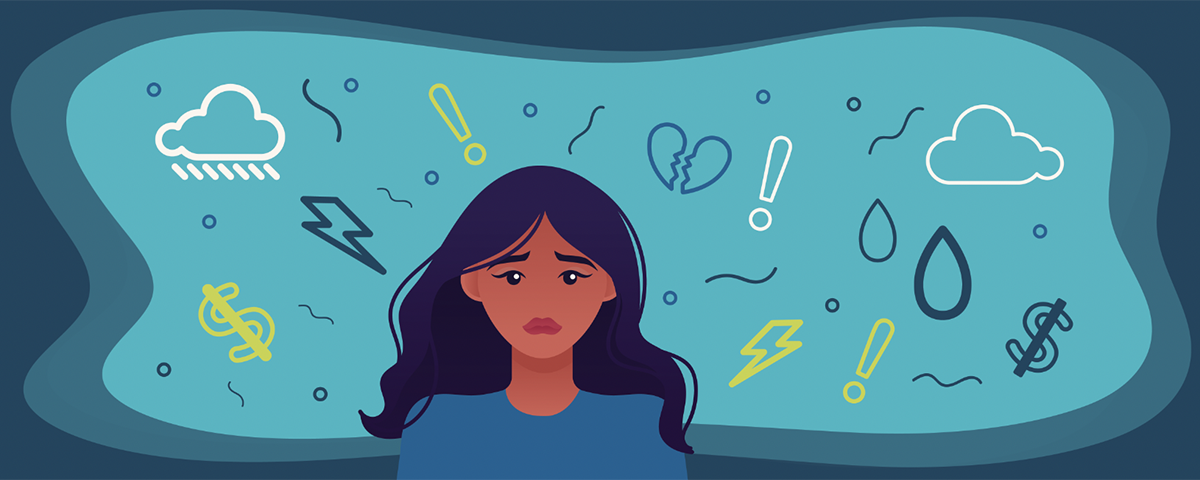By Kerianne Lawson, Chief Programs Officer, Beach Cities Health District
August is back to school season and families and students are checking in to make sure they have all they need for a successful school year. Registration and classes? Check. School supplies? Check. Face masks? Check. Now is also a great time to check in on your own health and well-being, specifically your mental health.
Throughout the COVID-19 pandemic, many of us have felt overwhelmed, overworked, isolated and disconnected. From the lack of physical connection and countless days stuck at home, you may have experienced not as many “good” days as you would if it were a normal year. And you may have high expectations for the relief you “should” feel as you resume your usual activities.
As we transition once more, you may be surprised to find that it’s not as easy to be back out in the world as you had expected it to be. Now is time to take stock of the culmination of isolation, disconnection and perhaps apathy to pause and really ask yourself “How am I?” If you’re not feeling at the top of your game, you’re not alone. According to the Kaiser Family Foundation(KFF), about 4 in 10 adults in the United States reported symptoms of anxiety or depression in January 2021, up from 1 in 10 in 2019. Additionally, many adults report negative impacts on their health such as sleep problems (36%), poor appetite or overeating (32%), difficulty controlling temper (18%) and increased alcohol or drug use (12%) as a result of worry and stress over the COVID-19 pandemic (KFF Health Tracking Poll, July 2020).
Warning signs like these can signal that something is just not right:
- Sleep or appetite changes
- Mood swings
- Excessive worry, fear, anxiety
- Withdrawal, apathy, loss of interest in hobbies or people
- Prolonged depression, sadness, irritability
- Problems thinking, concentrating, functioning
- Substance abuse
- Suicidal thoughts
If you are experiencing a serious or life-threatening concern, please call 9-1-1. If your concern is not life-threatening, support is also available by contacting the 24/7 providers listed below:
- Suicide Prevention Lifeline: (800) 273-8255
- Crisis Text Line: Text the word “HOME” to 741-741
- LA County Mental Health Services: (800) 854-7771
Self-monitoring for these warning signs can help you determine when to seek help from a professional. If these warning signs have been interrupting your everyday life, the next step is to consider reaching out to a mental health professional for help. They will be able to help diagnose if you have a mental health condition and develop a treatment plan that could include therapy, support groups, medication or other lifestyle changes. Even if your warning signs don’t rise to the level of an official diagnosis, consulting with a neutral and caring professional can help you to sort out your concerns, learn new coping skills and prioritize your own health.
If you do not have a mental health professional, reaching out to your primary care provider, either through a virtual or in-person visit, is a great place to start. Since you have an existing relationship with them, it may be easier for you to clearly express your concerns openly and honestly. Before your appointment, jot down any symptoms and stressors you have been experiencing, how they affect your mood and everyday life, your medical information including health conditions and prescriptions, and any questions you’d like to ask.
Reaching out can feel scary, so if you’re not ready to seek professional help just yet, reach out to a trusted person who you feel comfortable talking to. In times of need, lean on your social support systems to check in and talk about how you’re feeling. Know that you are not alone.
You can also contact Beach Cities Health District. If you or someone you know in the Beach Cities needs assistance with health-related information or referrals, please call our Assistance, Information & Referral line at 310-374-3426, ext. 256, 8:30 a.m. - 5 p.m. or visit bchd.org/resources. Additionally, the Los Angeles County Department of Mental Health is offering iPrevail free to all Los Angeles County residents. iPrevail is an online mental health resource residents can use 24/7 to get support. Connect with trained peer specialists, join a community support group or try out one of the many digital programs. Learn more at lacounty.iprevail.com.
As our community continues to transition and re-emerge from the COVID-19 pandemic, it’s more important than ever to make mental health a priority.




